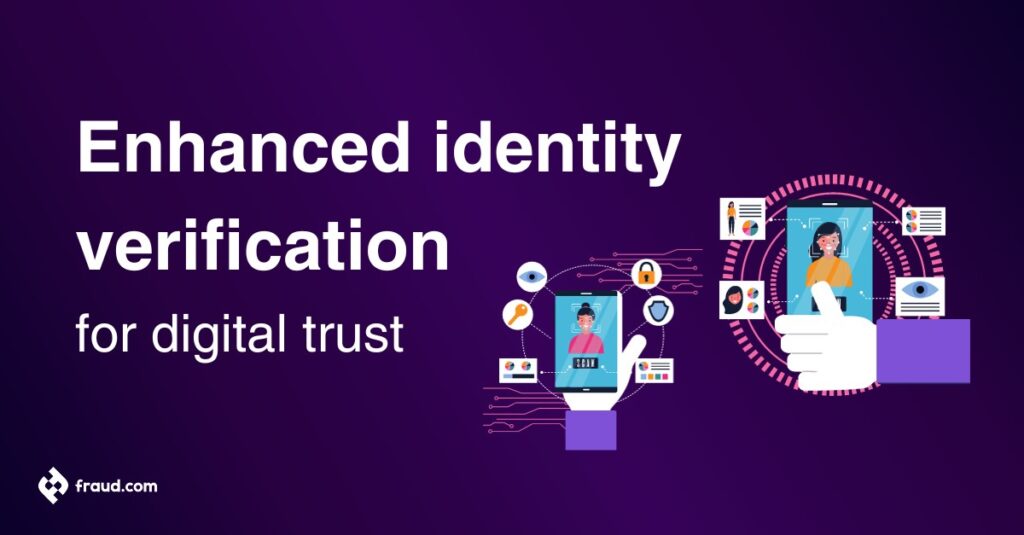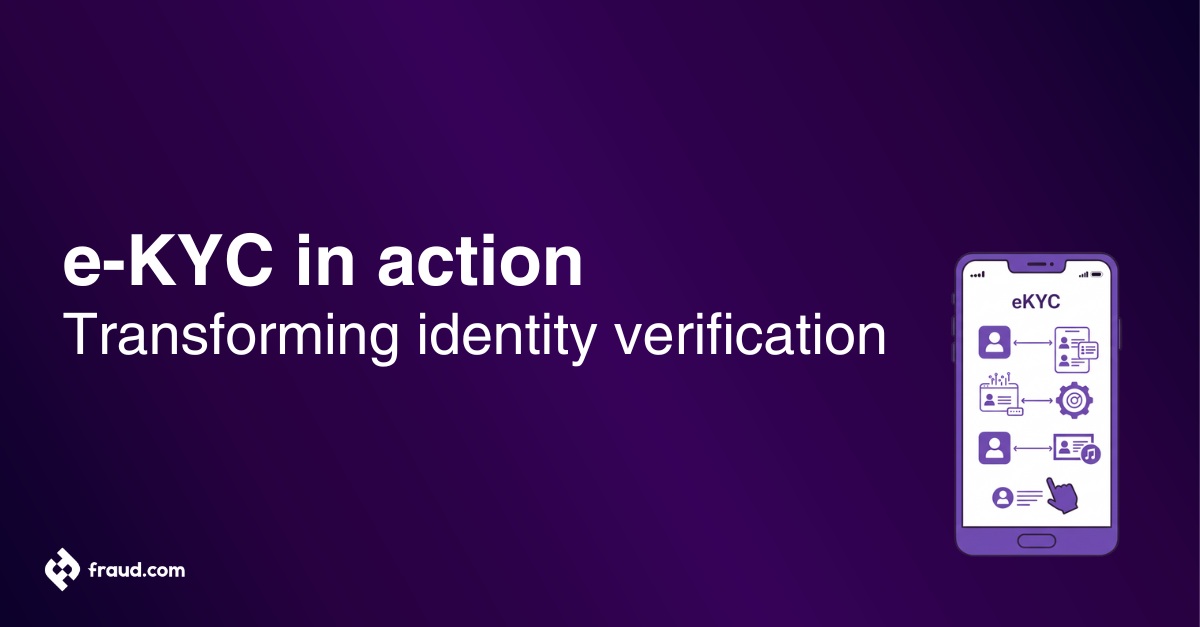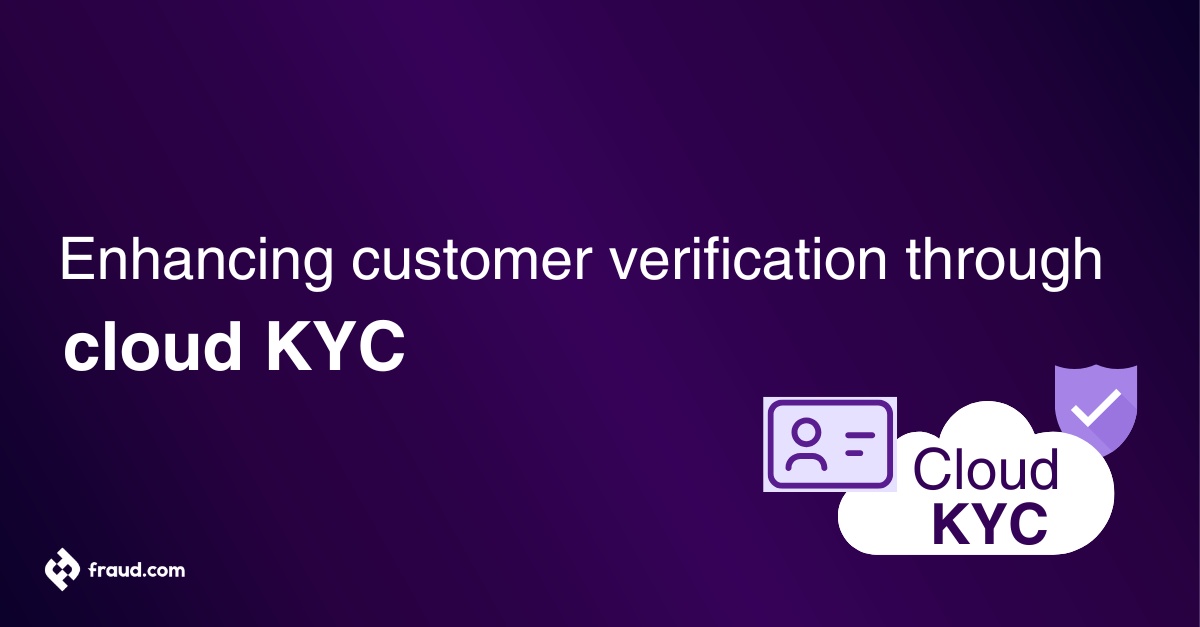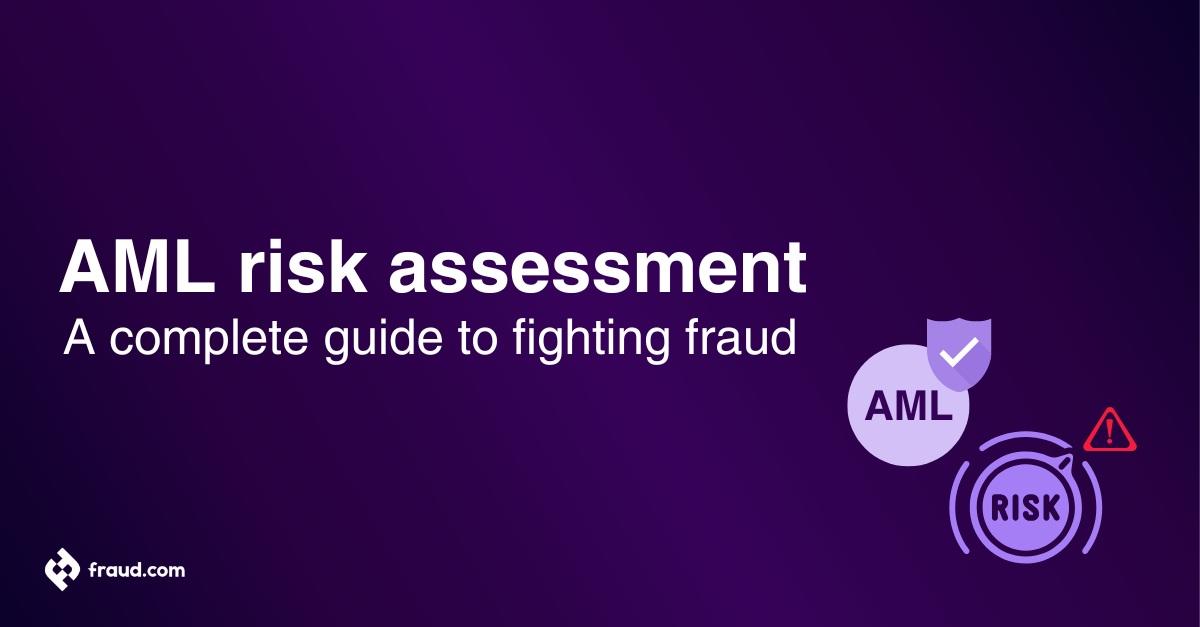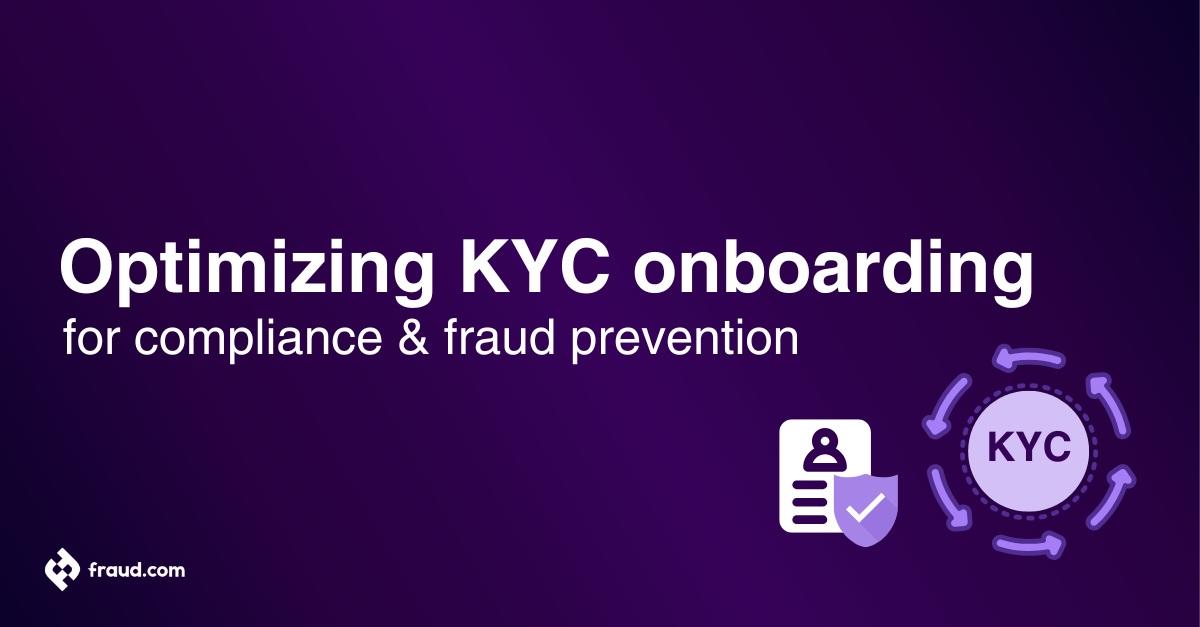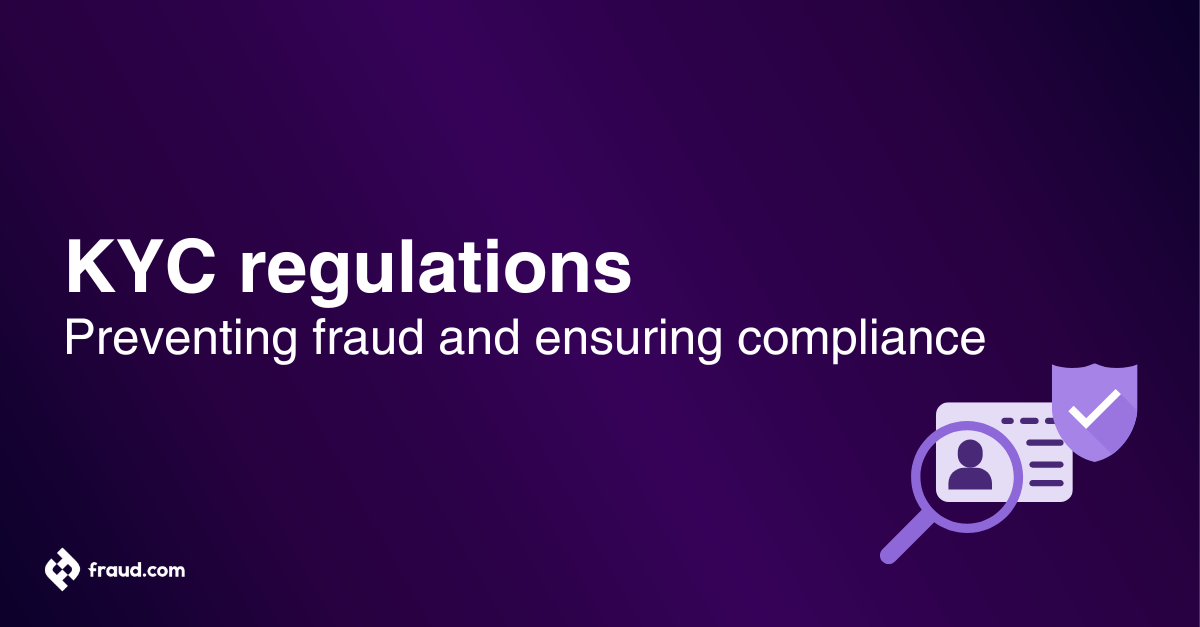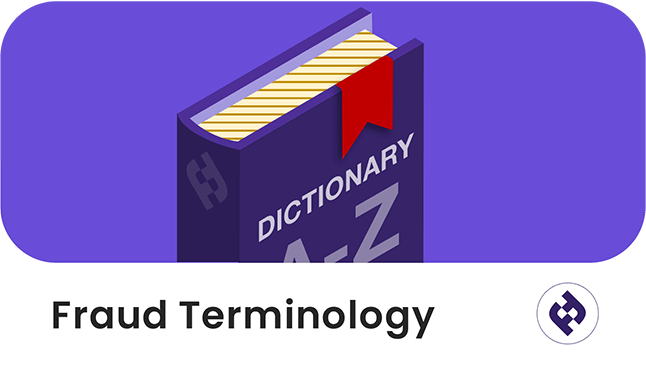Identity verification is the process of confirming an individual’s identity to ensure the security and integrity of personal information and transactions. Enhanced identity verification refers to advanced methods and technologies beyond traditional identity verification processes, providing more robust and reliable means of confirming an identity.
In an increasingly digitalized world, trust is a critical factor in online interactions. Digital trust is the confidence users have in the security and reliability of online platforms and services. Enhanced identity verification plays a crucial role in establishing and maintaining this trust.
This article explores the world of enhanced identity verification and its crucial role in digital trust. We will delve into the current state of identity verification, cutting-edge technologies, their benefits, real-world applications, regulatory aspects, and future trends.
Table of Contents
ToggleThe current state of identity verification
Traditionally, identity verification relies on OCR verification methods on ID documents such as ID cards, passports and driver’s licenses, without added layers of security such as liveness detection. However, these methods have significant limitations, including the potential for identity document forgery and limited protection against identity theft.
The increasing threat of identity fraud and the need for improved security measures have driven the demand for enhanced ID verification solutions. As a result, businesses and organizations are exploring more advanced methods to verify their users’ identities.
Recent developments include the integration of biometric data like fingerprints, facial recognition, and behavioural biometrics, as well as the use of machine learning and artificial intelligence to enhance verification processes, such as liveness detection and NFC for ID verification as opposed to OCR.
Enhanced identity verification technologies
As fraudsters become increasingly sophisticated, traditional methods of ID verification can no longer provide adequate security. In response, various technologies have emerged to enhance the verification process and ensure the authenticity of identities. These technologies leverage unique physical traits, advanced algorithms, and decentralized approaches to combat fraud more effectively:
- Biometric authentication: Biometric authentication takes advantage of unique physical traits to verify identity. Voice biometrics and facial recognition are examples of biometric authentication that leverage unique physical traits, such as voice and facial features, for ID verification. These methods offer a high level of security and accuracy, making it difficult for fraudsters to imitate or forge identities.
- Retina and iris scanning: Going a step further, retina and iris scanning delve into the intricate patterns of the eyes for identity verification. By examining the unique characteristics of the eyes, these technologies provide an added layer of security, making it extremely difficult for fraudsters to bypass verification protocols.
- Multi-Factor Authentication (MFA): MFA adds an extra layer of security by combining multiple verification factors. This approach typically combines something the user knows, such as a password, with something they have, such as a mobile device. By requiring users to authenticate their identities through multiple channels, MFA significantly reduces the risk of unauthorized access.
- Two-Factor Authentication (2FA): 2FA is a specific type of MFA that combines two factors for identity verification. Typically, this involves combining something the user knows, such as a password, with something they have, such as a unique verification code sent to their mobile device. 2FA provides an additional level of security, making it increasingly difficult for fraudsters to bypass verification processes.
- Blockchain and decentralized identity: Blockchain technology has revolutionized many industries, including identity verification. By providing a decentralized approach to identity management, blockchain reduces the risk of centralized data breaches and enhances data security. With blockchain-based identity systems, users have greater control over their personal information, limiting the chances of fraudulent activity.
- Behavioural biometrics: Behavioral biometrics analyze user behaviour patterns to verify identity. This approach leverages unique characteristics such as keystroke dynamics, mouse movement, and device usage patterns to create a profile that is difficult to imitate. By monitoring and analyzing these behavioural patterns, organizations can add an extra layer of security to their verification processes.
Benefits of enhanced identity verification
- Strengthening security: Enhanced identity verification technologies significantly improve security measures, reducing the risk of unauthorized access and data breaches.
- Reducing identity theft and fraud: By using biometric data and advanced verification checks, enhanced identity verification methods are highly effective in reducing identity theft and fraudulent activities.
- Enhancing user experience: These technologies not only boost security but also provide a smoother and more convenient user experience, eliminating the need for lengthy verification processes.
- Building trust in online transactions: Enhanced identity verification is instrumental in building trust among users, which is paramount for online transactions and interactions.
- Streamlining compliance: Enhanced identity verification technologies aid in streamlining compliance with regulatory requirements, ensuring that organizations adhere to industry standards and regulations.
- Reducing operational costs: Implementing enhanced identity verification can help reduce operational costs associated with fraud mitigation and remediation. By preventing unauthorized access and fraudulent activities, organizations can minimize financial losses and save resources.
- Improving customer confidence: Enhanced identity verification inspires customer confidence, as users feel more secure knowing their personal information is protected. This increased trust can lead to greater customer loyalty and satisfaction.
- Enhancing accuracy and efficiency: With the use of advanced technologies, enhanced identity verification processes offer higher accuracy and efficiency compared to traditional methods. This ensures that individuals are positively identified without unnecessary delays or errors.
- Improving customer experience: Users feel more secure, boosting loyalty and satisfaction. Robust and efficient identity verification processes not only build trust but also save customers time and frustration, making their experience smoother and more enjoyable.
In summary, the benefits of enhanced identity verification technologies are numerous. They strengthen security, reduce identity theft and fraud, enhance the user experience, build trust in online transactions, streamline compliance, reduce operational costs, improve customer confidence, and enhance accuracy and efficiency. By embracing these technologies, organizations can effectively combat fraud, protect sensitive information, and create a secure environment for their users.
The regulatory landscape in identity verification
The regulatory landscape in identity verification is increasingly complex, with strong requirements to protect personal information and avoid identity fraud. In Europe, the General Data Protection Regulation (GDPR) sets forth strict guidelines for the secure handling of personal data in identity verification processes. Similarly, data privacy laws in the United States, such as the California Consumer Privacy Act (CCPA), impose obligations on businesses to safeguard personal information.
Compliance with these regulations is crucial for businesses operating in various industries. For example, the financial industry must adhere to the Know Your Customer (KYC) and Anti-Money Laundering (AML) regulations, which require robust identity verification measures to prevent fraud and financial crime. Additionally, healthcare organizations must comply with healthcare data protection laws, such as the Health Insurance Portability and Accountability Act (HIPAA), to ensure the privacy and security of patient information.
To stay compliant and secure, businesses must implement industry-specific standards and best practices in their identity verification processes. This includes encryption, secure data storage, regular audits, and implementing strict access controls. By adhering to these standards, businesses can not only mitigate the risk of data breaches and regulatory fines but also gain the trust of their customers by demonstrating their commitment to data privacy and security.
Real-world identity verification applications
Enhanced identity verification technologies have found application across various sectors, addressing the growing need for secure and reliable identification processes. The following are real-world identity verification applications:
- Finance and banking: The financial sector has widely adopted enhanced identity verification to ensure secure account opening, transaction verification, and compliance with regulatory requirements.
- E-Government and digital services: Governments are utilizing these technologies to streamline public services, providing citizens with secure access to essential services online.
- Healthcare and telemedicine: Enhanced identity verification ensures the security of patient information and the integrity of telemedicine services, making remote healthcare more accessible.
- E-commerce and online marketplaces: Online marketplaces rely on these technologies to verify the identities of sellers and buyers, fostering trust and reducing fraudulent activities.
- Travel and border control: Identity verification plays a crucial role in travel and border control systems, ensuring the authenticity of individuals crossing international borders.
Enhance identity verification by Udentify
In conclusion, enhanced identity verification is pivotal in establishing digital trust, ensuring security, and offering a seamless user experience. Businesses and organizations should embrace these advanced technologies to enhance security measures, reduce fraud, and build trust in the digital realm by adopting cutting-edge identity verification solutions such as Udentify.
Udentify offers strong and efficient identity verification coupled with liveness detection, both OCR and NFC-based verification, and biometric authentication, ensuring robust proof of identity, safeguarding and successfully identifying and validating identity data, such as dates of birth and the liveness verification of the user.
Looking ahead, the importance of advanced identity verification is expected to grow, influencing our online interactions and transactions. Solutions such as Udentify are leading this trend, providing state-of-the-art solutions for identity verification and establishing digital trust in a constantly changing digital environment.

